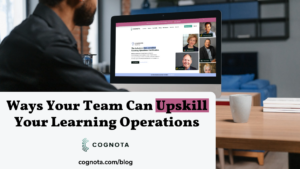According to Harvard Business Review, the term employer brand has been around since the mid-1990s. Employer brand denotes an organization’s reputation as an employer, as opposed to its more general corporate brand reputation.

As the competition for talent has grown more intense, corporations have begun to apply the same focus and consistency to their employer branding as they applied to their general corporate and consumer branding.
Such companies want to promote themselves as an employer of choice to a desired group — one which the company often needs and desperately wants to recruit and retain (think data scientists and software developers).
Of course, employer branding is directly related to all other branding initiatives: people are more likely to trust a company based on what its employees have to say.
The ubiquity of Best Places to Work programs and anonymous ratings sites like Glassdoor help drive employer branding programs. The Business Case for Employer Branding von Glassdoor
Additionally, it is becoming more common to have an Employer Branding Specialist as a full-time staffer in many large corporations.
The role requires a unique combination of marketing, PR, recruiting, and HR skills, though to be clear, companies are more interested in the marketing and PR than the the HR.
Recruiters for difficult-to-fill positions have existed for decades. However, recruiters before the LinkedIn era acted clandestinely and there did not exist forums to learn what really went on at the company. Today, it’s all out in the open. From CEO to intern, it’s not difficult to find employee opinions.
Employer branding programs include the usual suspects: Facebook pages showing the ‘human’ side to the company, or an office featured in TechCrunch’s Cribs (or no office at all, and the ability to work remotely).
But craft beer on Friday afternoons won’t advance a career: employer branding specialists should include training as a cornerstone in their outreach programs.
According to Entrepreneur magazine, today’s workers seek more flexible workplaces, ones which provide social and collaboration platforms and access to e-learning. Younger employees recognize the need to constantly refine their skills, and will seek out employers who make concerted efforts to advance their employees’ careers.
Ensure your L&D initiatives become a stronger part of your employer branding by
- Encouraging employees who are active in their learning modules to share their experience in their personal social media accounts Of course, you cannot force this, but perhaps the ones who have stellar experiences will do this anyway.
- Making friends with your company’s recruiters or employer branding specialist, and ensuring that in job ads and conversations with candidates that they share that the organization is fully committed to learning.
In this way, learning will be the topic of conversation in the full life-cycle of recruiting — and retention.




